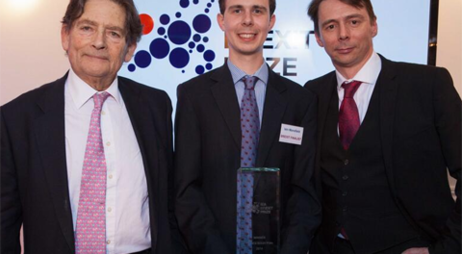Open Innovation and a Tough Political Decision
Published Sep-29-14Breakthrough:
An open innovation contest to find the most convincing and comprehensive plan for how Britain could leave the European Union.
Company:
Institute of Economic Affairs, United Kingdom
The Story:
 One of the most fascinating innovations in open innovation is how the paradigm is being used to engage citizens in political processes, giving them more of a say in how their neighborhoods, cities and countries are run. From Apps for Democracy contests to Iceland crowdsourcing some of its constitution, the crowd is being engaged in a variety of ways.
One of the most fascinating innovations in open innovation is how the paradigm is being used to engage citizens in political processes, giving them more of a say in how their neighborhoods, cities and countries are run. From Apps for Democracy contests to Iceland crowdsourcing some of its constitution, the crowd is being engaged in a variety of ways.Politicians do not have all answers and like most people, their expertise only covers a limited field. Wider consultation brings a richer pool of ideas from which to draw from. In some countries the general public has been asked to suggest policy ideas and to provide insights and possible courses of action in some areas.
Exit Plan
In the United Kingdom, there is an ongoing debate about whether to stay or leave the European Union (EU), the economic and political partnership between 28 European countries. It is a highly sensitive and deeply divisive issue and an in-out referendum may take place in 2017.
In the lead up to a possible voting day, both sides will be advancing their positions through public debates and in media outlets. In 2014, the Institute of Economic Affairs announced that it was holding an open innovation competition, the Brexit Prize to find the best plan for leaving the EU. The institute also wanted this strategy to cover the country’s post-exit position. They offered €100,000 (approx. USD $130,000) to the author of the winning submission whose arguments could then be expounded in a series of interviews.
Entrants could be individuals from any walk of life or corporate bodies, and the first step was to submit proposals of up to 2,000 words. A total of 149 participants took up the challenge and these were whittled down to a shortlist of six who were all invited to write essay submissions of between 10,000 and 20,000 words.
They were assessed by a panel of nine judges that included Lord Lawson, the Chancellor of the Exchequer during Margaret Thatcher’s premiership.
Openness not Isolation
The winning essay, entitled “A Blueprint for Britain: Openness not Isolation” was written by 30-year-old Iain Mansfield, the Director of Trade and Investment at the UK’s embassy in the Philippines. His entry calls for the UK to join the European Free Trade Association and for a review of EU regulations to be undertaken.
That the winning entry was from a serving diplomat raised eyebrows in some quarters. The UK government remains committed to staying within the EU and has banned Mansfield from giving media interviews, even though the essay was written in a personal capacity.
The essay does not address whether or not the UK should leave the EU. What it does do is demonstrate a possible course of action and how Britain could still thrive, for example, by pursuing free trading agreements with powerful trading nations such as China, the United States and Russia.
The competition also awarded cash prizes to second and third place winners.
Next Story »


